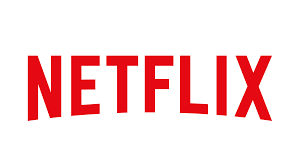Agenda Day 2
8:00 am - 8:30 am
REGISTRATION & COFFEE
8:30 am - 8:40 am
CHAIRS OPENING REMARKS
8:40 am - 9:10 am
Opening Panel Discussion: Do you have FOMO? AI in CX retail - Hype vs. Reality
Jad Freiha -
Head of Analytics & Insights,
Sweaty Betty
Suhail Sulaiman - Global Head of Data, Analytics & AI, BREITLING
Every individual, company, and team is eager to join the AI and machine learning bandwagon. Nobody wants to be left behind or feel excluded from this transformative technology but where are we really, with AI deployment in customer experience retail?
• How do you currently leverage AI within your retail business for CX in an efficient way? What were the practicalities of having done that and what challenges did you have to overcome in the process?
• What ROI have you seen from AI and where are you looking to leverage it in the short, medium and long-term?
• Despite broad agreement that AI has a significant role in transforming fortunes, it comes with challenges. Whether it’s funding concerns, build vs buy, choosing to focus on front or back office, or something else, how do you avoid the pitfalls of AI adoption and implementation?
• How are you planning to scale up (or not) for this tech and blend with human resources?
9:10 am - 9:40 am
Presentation: Generative, Predictive or Agentic AI – How Do You Move from Insights to Action & Leverage Real, Bottom Line Impact On CX?
In an era where consumer behaviours and technological landscapes are continually evolving, retailers encounter unprecedented challenges and opportunities. This session delves into the transformative power of generative and predictive AI technologies on the future of retail. Discover how innovative solutions enable businesses to adapt to shifting consumer preferences, make informed decisions swiftly, and drive accelerated and sustainable growth.
• AI holds transformative potential for driving innovation and growth in retail - so how do you transition to intelligent retail, combined with human strengths for better outcomes?
• What structural changes are required for retailers to scale generative AI, predictive AI or agentic AI solutions successfully? How can retailers overcome common challenges such as data privacy and resource limitations?
With a high proportion of consumers valuing the post-purchase experience as much as product quality - and unlikely to return after a negative experience - this stage of the customer journey is now a critical battleground. Customers demand reliable delivery, seamless returns, and clear, personalised communication. Meeting these expectations, while managing costs, requires smart planning and innovation.
• The tools and technologies that drive loyalty and repeat spending through consistent, standout post-purchase interactions
• Key lessons from retailers and consumer brands successfully optimising delivery, fulfilment, and returns to exceed customer expectations
11:30 am - 12:00 pm
Presentation Thinking Global, Acting Local - How Adidas is Reshaping Customer Interactions Through AI Innovation & Cultural Adaptation
Stijn Bannier -
Global Digital Product Director - Ecosystem,
Adidas
For global brands scaling operations into new markets, adapting to regional preferences and local processes is critical. Success cannot be achieved by throwing a blanket over diverse customer groups. An overarching global strategy is key to any broad, large scale expansion programme, but it must be coupled with a deep understanding of regional dynamics and engagement behaviours. Navigating this complexity is anything but simple, but for the brands that get it right, competitive advantage awaits. It is this promise that sparked a digital and cultural transformation within the customer service function at adidas.
In an era where personalisation defines brand loyalty, adidas has cracked the code on delivering tailored customer experiences across multiple markets. By balancing a global strategy with local precision, the brand has mastered the art of scaling personalisation without losing regional relevance. In this session, Stijn Bannier will take a deep dive into how the change initiative took shape, breaking down the role AI is playing in the transformation, the procedures adidas have in place to avoid technological missteps, the moments when they needed to course-correct their approach, and so much more.
12:00 pm - 12:30 pm
Panel Discussion: Experiential Retail - Building Innovative & Engaging Store Experiences to Turn Emotions into Lasting Brand Attachment
Jaime Mur -
Global Head of Retail and Customer Care,
Nespresso
Marcus Tengler - VP Real Estate & Store Concepts, MediaMarktSaturn
Hareesh Goutham - Director - Retail Experience & Digital Experience Europe, Adidas
Experiential retail is an immersive strategy that transforms shopping from a transactional activity into an engaging, memorable journey to build emotional connections and lasting brand loyalty. By focusing on customer experience rather than just product displays, retailers are differentiating themselves from online competitors to drive long-term business success.
• How are you successfully moving from a brand business to an experiential business? What worked and what didn’t?
• Human element vs technology: In a world where CX discussions often focus on technology and AI, how are you shifting the spotlight back to the human element in-store and exploring empathy-driven interactions?
• What techniques are you using to create memorable experiences that build customer loyalty and encourage repeat visits/ experiences?
1:05 pm - 1:50 pm
NETWORKING LUNCH BREAK
2:30 pm - 3:00 pm
Fireside Chat: Creating A Seamless End User Product Through Great Leadership & An Innovation Mindset at Netflix
Babak Andishmand -
Regional Technology Experience Manager,
Netflix
Behind every groundbreaking production and seamless creative pipeline lies a culture of strong leadership, effective collaboration, and a commitment to innovation. In this session, we’ll explore what leadership best practices look like within Netflix’s unique culture, where freedom & responsibility and people over process go hand in hand (think of “culture eats strategy for breakfast”).
Discover how people management and leadership fundamentals drive high-performing teams, empower creative decision-making, and sustain operational excellence in studio technology and production workflows, ultimately resulting in a seamless end-user product. Learn how leaders across the organisation foster trust, encourage experimentation, and align teams around a shared vision while navigating the evolving challenges of global content creation. Babak will focus on growth, scalability, technological adaptation during transformations and leadership principles, drawing from his experience in New York and Europe at Netflix.
3:00 pm - 3:30 pm
Fireside Chat How Can You Leverage CX To Change Consumer Behaviour?
Christophe Scarton -
VP Omnichannel Consumer Experience,
Philip Morris International
To drive behaviour changes, you must first understand the journey your customers are on. Mapping this process reveals every interaction, or touchpoint, and identifies areas of friction or opportunity. So how do you change a consumer behaviour that is a very familiar behaviour and move them into a newly familiar behaviour - like changing a habit?
How do you demonstrate: a technological superiority, a fashion superiority and then provide them the incentive to try the product and maybe to move over? Hear the journey of one retailer as they capture the heart of the customer.
3:30 pm - 4:00 pm
Closing Panel Discussion: Building Resilient CX The Future of The Retail Workforce, Impacts of Digital Transformation & The Roles of the Future
David Rissmann -
Head of Strategy & Chief of Staff,
Flaconi GmbH
Elzbieta Bogatko - VP Customer Service, BestSecret Group
Christina Bochheimer - Vice President of Customer Experience, XXXLutz Group
The resilience of customer experience in retail will be defined by the workforce’s ability to adapt to ongoing digital transformation. Technology is automating routine tasks and creating new roles that require a unique combination of technical and interpersonal skills. Retailers that invest in upskilling their employees and building an agile, supportive culture will create a resilient CX that thrives on personalised, seamless, and emotionally resonant customer journeys. Hear from CX leaders thinking about the workforce of tomorrow and how they’re preparing for it today.
• What impacts are you seeing of AI and digital transformation on the organisation, workforce and roles of the future?
• Human and AI operating models - how are you re-wiring the human- AI operating model to train staff in the age of AI?
• How do we ensure the long-term relevancy of our customer service workforce? How do we keep them up to date when it comes to their skill set and competencies?
• What are the future skills that the workforce needs to acquire and are actually proficient to remain relevant in the future?























